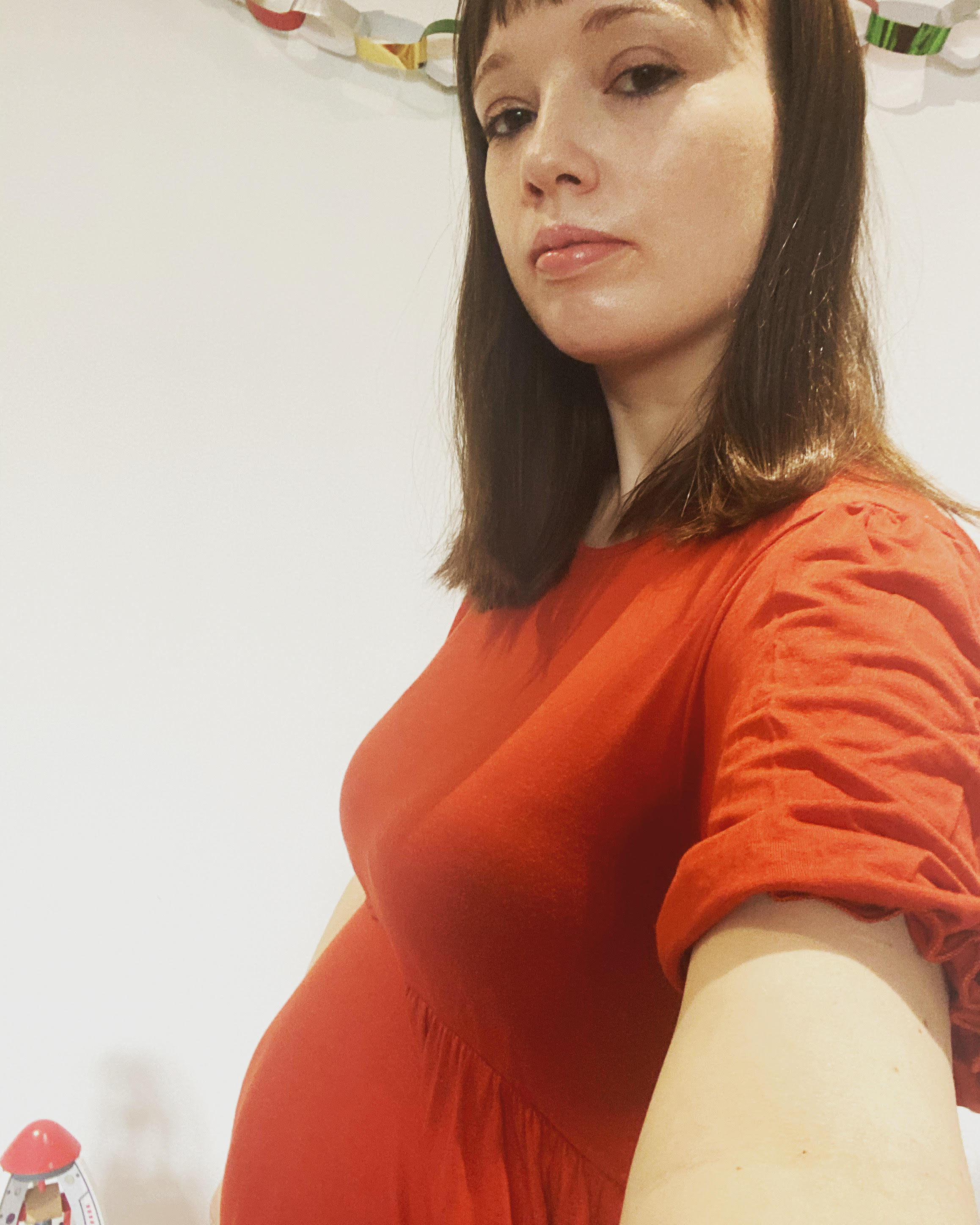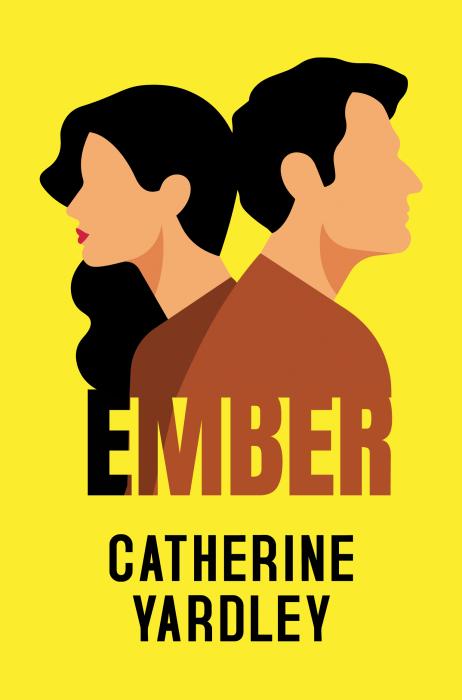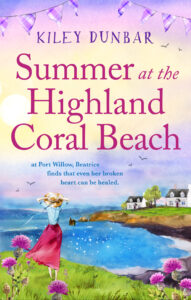TW: baby loss.
We all have fears in life and if we are lucky enough we don’t experience them. Although I have experienced anxiety in my life I thought I was one of those lucky people. It was November 2019 and I lived my life in a cosy bubble. Bad things had happened in my life, and I had lost people I loved, but I felt happy and lucky.
Two months earlier my husband and I had decided to try for a third baby. I was thirty-five but I got pregnant immediately. I was over the moon and slightly smug. Geriatric pregnancy my arse. Later, I was exercising and I felt something weird happen in my body. Like a pop. I immediately stopped and put my hand to where the weird pain had happened. Then I brushed it away. There was a weird uncomfortable pain in my entire body. It felt like a balloon was filling up. I couldn’t sit down properly. Then when I went to the bathroom there was blood. The blood was very dark and it freaked me out. I went to A&E. They didn’t even scan me and sent me home. Despite the fact I could barely walk and was in a lot of pain. I have a high pain threshold and I felt like they didn’t see that I was suffering enough.
The next day I went to the early pregnancy unit and they thought the pregnancy was an ecoptic pregnancy. I’m not going into detail about all of it in this piece because it is an entire article in it’s own. I started feeling the pain on Monday and it was Friday afternoon when I finally got my ’emergency’ surgery and one of the first things the surgeon said to me when I come to was that they caught it ‘just in time.’ My fallopian tube had ruptured and I was bleeding internally. I had been walking around bleeding internally for days while being told to ‘go home.’
There are snapshots of this time that haunt me: the registrar stroking her very pregnant belly while asking what I wanted to do with the remains of my baby, the fear when they sent me home that I would die in my sleep. Waking up and not being pregnant anymore. Notably the fact that they kept sending me home and eventually, days later, I refused to go home and made them scan me again. On the day of my surgery I almost passed out numerous times and the nurse kept bringing my back with oxygen, refusing to let me faint on her watch.
Mostly I remember the grief. There is no pain like losing a baby. I always thought people who killed themselves before that were selfish, now I know they are just in so much pain that they want to leave their bodies. I was completely and utterly broken. The only thing that brought me through were my other children. I figured if I could just put my feet onto the floor every morning and then get out of bed, I could survive. I only had to put one foot in front of the other.
In the blur of everything I took care of my children and tried to make sure they couldn’t see my pain. I didn’t want them to suffer, and I refused to let them see their mother depressed or spending days in bed. I knew that I had to structure my days. I had to get out of bed and smile at my children. Play with them, read them books. I took up Spanish and started doing yoga. It helped that we were moving house and I had to pack up and deal with all of that.
Just as the surgery scars started to heal a little I got ill. really ill. I had this continuous cough that wouldn’t go away. I spent boxing day with my mother-in-law and my husband’s aunt, uncle and their children. I had to find an emergency doctor’s appointment and fainted at the pharmacy getting antibiotics. I somehow managed to walk home although I have no idea how.
A few days later I was going to take my children to bed when I felt a sharp pain in my chest. It took my breathe away and then I couldn’t breathe. I was on the floor crying, barely able to breathe, begging my husband to help me. He called an ambulance and long story short I had double pneumonia, just as rumours of a SARS like illness started in China. I was unable to eat anything or lie down flat. I spent the next six months recovering as the world went into lockdown.
It was now July and my world started to come together again just as I noticed my period was late. I took a test and I was pregnant again. The happiness I felt was like nothing else. But then weeks later I started bleeding. I made my way to the hospital, desperate to hold onto this baby, only to lose another one. A few of my amazing friends told me they were pregnant and I didn’t want to tell them about my miscarriage because I didn’t want to scare them, or take away their joy. I would see pregnant women on the street and feel a bitterness that made me not recognise myself. I was full of hate and pain. I found women who were pregnant with their third child, or who had one, especially triggering. The pain of a miscarriage is hard to describe. It wasn’t as tough as the ectopic pregnancy, but the emotional pain of waiting for your baby to pass through you is sharp and brutal. The loss is acute.
I got up, homeschooled my oldest until 2pm and then focused on my toddler for a few hours. Then I forced myself to write three thousand words a day. I started another novel which I finished in six weeks.Then one day I walked out into my garden and the world seemed so beautiful. I sat down to take it in and I saw dew on the blades of grass. I thought about how cruel it was that my baby never got to experience a moment of this world, and yet I knew the world was still beautiful and that life went on. Even if the pain never really goes away.
I started to hate who I was becoming so I stopped. I decided that I didn’t want anyone else to feel this pain that I was feeling. I wanted to put positivity and love out into the world. To spread nothing but kindness. In this I finally found myself again. There is nothing uglier than bitterness or hate and my refusal to let it consume me was a turning point. I donated to charity and did everything I could to spread community and love. I kept writing and I started submitting my novel to agents and publishers. I went after every dream I had and I worked hard.
It has been two years now since my grief threatened to swallow me whole and I look back at that time and it still hurts, but I’m proud of myself. My Spanish is still mediocre and my yoga is not great, but I got a book deal and my novel Ember published in March 2022 to great acclaim. Ember has a character in it who had a miscarriage in the past and the lead character is also an obstetrician. I almost abandoned the book after my ectopic as I found editing it so painful, I put all of my pain into it. It was like therapy. I persevered and I’m proud I did. More importantly, in June 2021 I had my gorgeous and beautiful rainbow baby who I am grateful for every day. A little boy who is sunshine personified.
I didn’t let my pain break me or change who I was. The worse things got the harder I reached for the best. The negativity made me search for the positive. Faith and love helped me reach the other side and I know that life is always beautiful and precious. I promised myself I would always live my life to the full and never take it for granted. I won’t break it.








